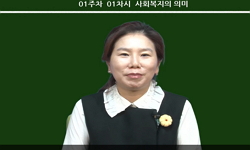The notion of communicative competence has received much attention in the field of second language (L2) learning. Sociopragmatic competence plays a significant role in realizing speech acts for nonnative speakers. To elucidate the nature of pragmatic ...
http://chineseinput.net/에서 pinyin(병음)방식으로 중국어를 변환할 수 있습니다.
변환된 중국어를 복사하여 사용하시면 됩니다.
- 中文 을 입력하시려면 zhongwen을 입력하시고 space를누르시면됩니다.
- 北京 을 입력하시려면 beijing을 입력하시고 space를 누르시면 됩니다.
https://www.riss.kr/link?id=A82516583
- 저자
- 발행기관
- 학술지명
- 권호사항
-
발행연도
2008
-
작성언어
-
- 주제어
-
KDC
370
-
등재정보
KCI등재,SCOPUS
-
자료형태
학술저널
-
수록면
115-139(25쪽)
- 제공처
-
중단사유
※ 스콜라의 원문 서비스 중단에 따라, 학술지명을 클릭하여 [복사/대출] 서비스를 이용해 주시기 바랍니다.
- 소장기관
-
0
상세조회 -
0
다운로드
부가정보
다국어 초록 (Multilingual Abstract)
The notion of communicative competence has received much attention in the field of second language (L2) learning. Sociopragmatic competence plays a significant role in realizing speech acts for nonnative speakers. To elucidate the nature of pragmatic speech use by nonnative speakers, many L2 speech act studies have been conducted, including requests, apologies, complaints, and refusals. As refusals are often seen as face-threatening acts by both requesters and refusers, this study aimed to investigate the effect of social status on the refusal semantic formulas used by Korean EFL learners and native English speakers. Thirty Korean English as a Foreign Language (EFL) learners, 30 native English speakers, and 30 native Korean speakers participated in the study. Data were collected via Discourse Completion Tests (DCTs). Results showed that the Korean EFL learner group tended to be more emotional and collectivistic, while the native English speaker group was more likely to be rational, individualistic, and direct. The implications of these findigs and their potential applications to help L2 learners develop sociopragmatic competence are discussed.
동일학술지(권/호) 다른 논문
-
Interdiscourse Communication in an Elementary English Classroom
- 한국영어교육학회
- 김영미
- 2008
- KCI등재,SCOPUS
-
The Effect of Self-Construal and Argumentativeness on English Writing by Korean College Students
- 한국영어교육학회
- 임현우
- 2008
- KCI등재,SCOPUS
-
Syntactic and Referential Markers Ensuring Objectivity in EFL Essay Writing
- 한국영어교육학회
- 황선유
- 2008
- KCI등재,SCOPUS
-
Task Types and Children’s Participation in the Chat Room
- 한국영어교육학회
- 고영인
- 2008
- KCI등재,SCOPUS






 스콜라
스콜라



